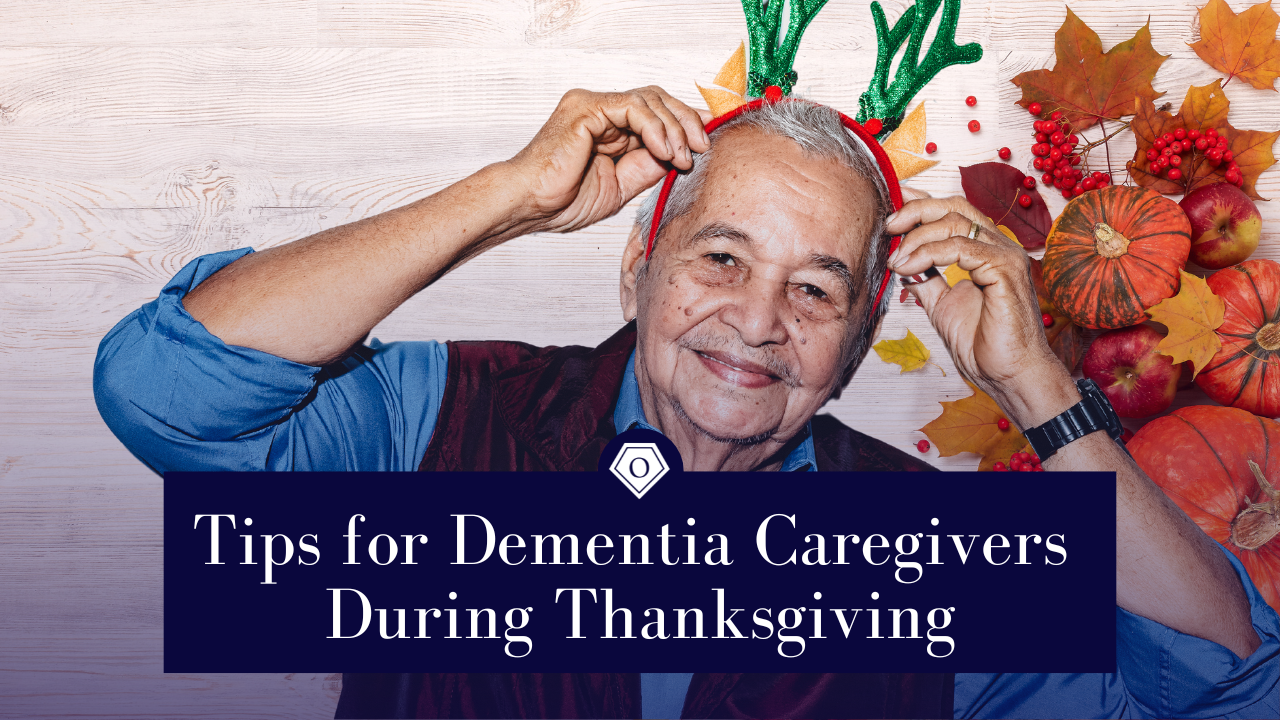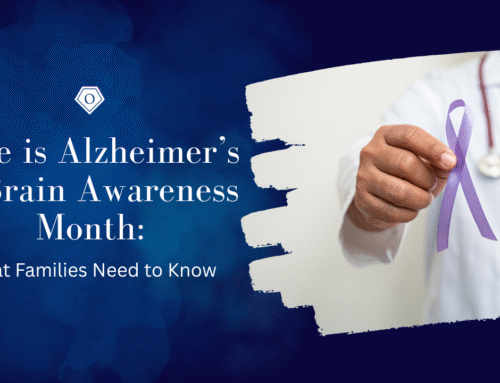Thanksgiving is a time for family, gratitude, and connection, but for caregivers of loved ones with dementia or Alzheimer’s, the holiday can bring added stress. Balancing your loved one’s needs with the hustle of the season can feel overwhelming. With some planning and thoughtful adjustments, you can create a meaningful and enjoyable Thanksgiving for everyone.
Before Thanksgiving
Plan Ahead
Keep the celebration simple and focus on the traditions that matter most. A large, elaborate gathering might not be realistic, so prioritize quality over quantity.
Communicate with Guests
Let family and friends know about your loved one’s condition in advance. Share tips for positive interactions, such as speaking slowly, maintaining eye contact, and avoiding correction if they get confused.
Involve Them in Preparations
Including your loved one in small tasks like folding napkins, stirring batter, or arranging flowers can help them feel valued and connected to the day.
During the Celebration
Create a Calm Environment
Large crowds and loud noise can overwhelm someone with dementia. Keep the gathering small, play familiar music softly in the background, and avoid overstimulation.
Stick to Their Routine
Disrupting routines can increase confusion and anxiety. Try to keep meal and activity times consistent with their usual schedule.
Have a Quiet Space Ready
Prepare a quiet room or area where your loved one can retreat if they feel tired or overstimulated. This can be a comforting option for them and a helpful break for you.
Interaction Tips
Focus on Familiarity
Talk about happy memories or share family photos to evoke positive emotions. Nostalgia can often bring moments of connection and joy.
Be Patient
If your loved one struggles with conversation, be patient and avoid pressuring them to remember details. Simply being present with them can mean the most.
Avoid Correcting Them
If your loved one misremembers an event or confuses names, go along with their reality. Correcting them may only cause frustration or anxiety.
Mealtime Tips
Serve Familiar Foods
Offer dishes they recognize and enjoy. Stick to their dietary preferences and avoid foods that might cause discomfort.
Simplify Choices
Too many options can be overwhelming. To make the meal easier to navigate, serve smaller portions with fewer items on the plate.
Caregiver Self-Care
Ask for Help
Delegate tasks like preparing food or cleaning up to family members. Don’t be afraid to ask for assistance in helping your loved one during the day.
Take Breaks
Caregiving is hard work. If you feel overwhelmed, take a moment to step away, breathe, or go for a short walk to recharge.
Focus on Moments of Joy
Reflect on the love and care you’re providing, and allow yourself to find joy in the small moments of connection during the holiday.
Consider Home Care for Additional Support
While caregiving is a labor of love, it’s essential to recognize when you need help. Professional home care services can provide relief, offering skilled caregivers who can assist with your loved one’s needs. Whether it’s just for a few hours during the holiday or ongoing support, home care can ensure your loved one is well cared for while giving you the time to focus on your own well-being.
This Thanksgiving, give yourself permission to celebrate in a way that works for you and your loved one. By planning ahead, setting realistic expectations, and considering additional support like home care, you can create a holiday filled with warmth, gratitude, and connection.
Dementia & Alzheimer’s Care
Onyx Home Care’s neurological disorder care is built around a system of support. This service includes skilled home care as well as a unique program that centers on the patient’s interests and stage of illness. Our goal is to see happy family members, patients and caregivers. Often times, caregivers feel remote. Our team includes each person in the home care process to provide inclusive care that helps the patient thrive.






